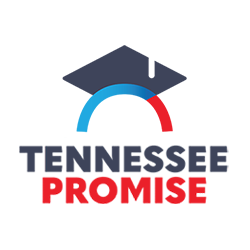Volunteer State Community College recognizes the need for the continued professional growth and development of all faculty. The continued professional growth and development of faculty is necessary for institutions of higher education to continue to provide educational programs which: (a) include new developments and knowledge in academic disciplines; (b) reflect new instructional, research, and public service techniques and strategies; (c) enhance skill development; (d) provide technical information; (e) improve instructional or teaching ability; and (f) meet changing needs and expectations of students. While all faculty are responsible for their own continued professional development, it is essential that the College provide planned, organized faculty development programs to encourage professional growth in accordance with its missions and goals. Pursuant to the foregoing considerations, the following minimum guidelines concerning faculty development are established:
- The Vice President of Academic Affairs, assisted by appropriate personnel, will plan and implement on an annual basis a structured, coordinated program for faculty development. The program will be designed to achieve predetermined institutional objectives, and will utilize an appropriate variety of activities which may include the following:
- Systematic evaluation of instruction by students, faculty, and appropriate administrators to provide a basis for planning and a means for increasing the effectiveness of the instructional program.
- Encouragement of innovation and improvement of instruction by a recognition system, i.e., outstanding faculty awards.
- Effective use of grants-in-aid, fee-waiver, tuition reimbursement, and audit/non-credit scholarships, which are directly supportive of professional growth and faculty development. These activities can include support functions such as advising, career planning, and assessment.
- Provision of financial support through grant awards and other means for research or the improvement of instruction, for faculty participation in workshops, short courses and seminars designed to develop new skills in instruction, research and public service, and for faculty participation in major activities of their respective professional associations such as conferences and other professional meetings.
- Sponsorships of local forums, lectures, and workshops on scholarly developments and activities.
- Development of effective faculty exchange programs between the College and industry, or the occupation being taught.
- The budget will reflect the amount of funds allocated for faculty development at the College.
- A calendar of professional development activities is maintained through the Teaching and Learning Center and is accessible to all faculty.
- Faculty Exchange and Personnel Status
- Faculty exchange assignments with higher educational institutions, other appropriate educational institutions, business and industry, and private or governmental agencies provide opportunities for faculty to acquire new information and skills, to bring to their home institutions a general awareness of different environments which are relevant to their teaching areas, and to expand experiences with the objective of improving their professional expertise.
- A full-time faculty member who applies for an "Exchange" which is subsequently approved by the President must remain on the College payroll and retain a condition of employment that continues all benefits for which he or she has qualified as a full-time faculty member. Time spent on the "Exchange" constitutes an equivalent teaching load activity which, under the "General Personnel Policy (5:01:00:00) "shall be subject to prior review and approval by the President or his or her designee."
- Criteria for Exchange Status
- A full-time faculty member may only be approved for "Exchange" status if the College enters into a contract whereby the host institution provides, in exchange, an employee who will be assigned (for a comparable percentage of full-time load) to the College.
- The College is responsible for the salary and benefits of the full-time faculty member assigned to an "Exchange." The host institution is responsible for the salary and benefits of the employee being provided in exchange. Each institution is responsible for paying the salary and benefits of its own employee.
- The workload assignment for the full-time faculty member assigned to an "Exchange" shall be determined by the host institution. Likewise, the College shall determine the workload assignment of the employee being provided in exchange.
- No exchange assignment shall be formally initiated with a host institution unless requested by the faculty member and approved by the President.
- No exchange assignment shall be approved by the President unless it meets the following provisions:
- Serves as an integral component of the faculty development plan;
- Supports the "General Statement" included in paragraph 1 above.
Exceptions to this policy may be proposed by the President for approval by the Chancellor.
TBR Source: TBR Meetings, June 24, 1977; December 11, 1988; December 13, 2018
VSCC Source: August 1988 (Reviewed November 23, 1998); September 11, 2008, President; March 18, 2019 President’s Cabinet, September 22, 2021



